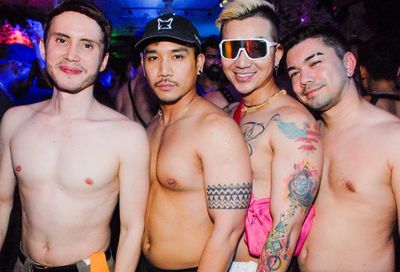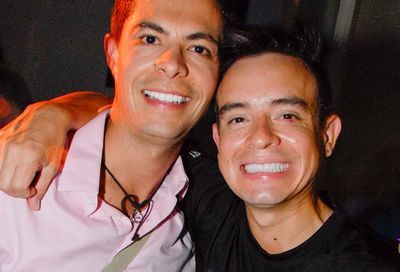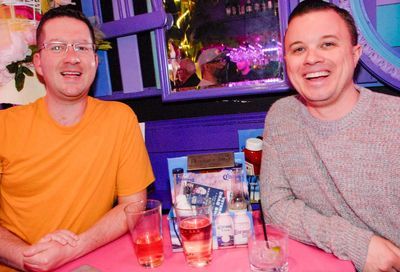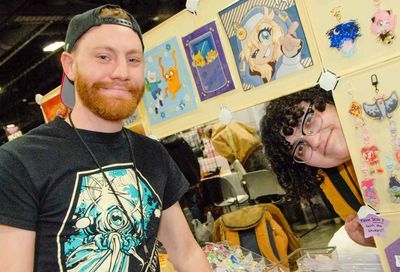Apology Politics and Anita Bonds
D.C. Councilmember should not be criticized for comment, but instead credited for tact
I have been following the recent furor over Councilmember Anita Bonds’s response to a statement made by George T. Johnson – a local leader in the American Federation of State, County and Municipal Employees (AFSCME) – to The Washington Post claiming there is a strong desire within the District’s black community to ensure that the D.C. Council at-large seat to be voted on April 23 remains with an African-American councilmember. On WAMU’s The Kojo Nnamdi Show, when candidates were asked about a statement, Ms. Bonds responded, ”People want their leadership to reflect who they are.”
Subsequently, the Gay and Lesbian Activists Alliance (GLAA) called for an apology from Ms. Bonds and another candidate, and stated, ”Candidates should be evaluated based on merit, regardless of color, religion, party, gender, sexual orientation or any other factor unrelated to their ability and commitment to serve the interests of everyone in our city.”
All of this reminded me of one of my first lessons in politics. When I was a freshman in college, Student Congress rewrote its constitution and called for new elections after spring break. Several of my friends encouraged me to run for a student representative seat. My friends and I developed a campaign – ”Tippecanoe and Earl Fowlkes, too” – my idea, while my campaign manager urged me to develop my base amount the small group of African-American students on campus. Up until this time, there had been little if any black representation on the Student Congress. I won the election thanks in large part to almost every African-American student voting for me. They voted for me because they felt that I could best represent their interests and concerns on campus. My campaign manager was Italian-American and he helped me navigate the politics of race and ethnicity. In my first year in office, I made it a point to understand the concerns of not just the black students, but all students on campus. Subsequently, I received the second-highest vote total the following year. People vote for people who they believe will best represent their interests based on many factors, including experience, education, race, gender, ethnicity, religious beliefs and shared values. This concept has not changed since I was a college freshman.
I have come to realize that merit is a very subjective word. What I would consider merit might be different from what my neighbor considers merit. I cannot imagine supporting a candidate who – while well-educated, well-spoken and experienced –waivers on LGBT rights. That’s why candidates who want the white-female vote in the suburbs target soccer moms, while those seeking the African-American vote appear at black churches on Sunday.
Actually, rather than apologize, Ms. Bonds should be acknowledged for tactfully responding to an issue that many people in the District only whisper about behind closed doors. Many District African-Americans, particularly our seniors, while happy that new businesses are opening and diverse people are moving here, are afraid that they will be priced out of their homes and neighborhoods, forced to leave Washington. In addition, they are also fearful that the changing demographics will disenfranchise them politically. Many remember when there were sizable black populations in Georgetown and on Capitol Hill. Therefore, it is paramount for many Washingtonians to identify and elect people who will find a way to balance the needs of the newcomers without sacrificing the needs of those who have lived here for generations.
Finally, I happen to know Councilmember Bonds. Through my association with her I have met community activists who are African-American, Latino, Asian and white. These are people whom I would not normally come into contact with, and they have helped me to understand issues that are important to many District residents, especially our seniors. Ms. Bonds reflects the values of many different parts of our diverse District. After all, does running a black LGBT organization mean that I care about only issues that impact the black-gay community? Of course not. In a perfect world, race, gender, ethnicity and sexual identity would not be determining factors in who gets elected. However, black Washingtonians do need to know that as the District becomes more diverse, they will not be forgotten. In retrospect, I am glad my campaign manager helped me develop a winning strategy for my college student government election, rather than use my campaign slogan.
Earl Fowlkes Jr. is the president/CEO of the Center For Black Equity and an at-large member of the Democratic National Committee.
Support Metro Weekly’s Journalism
These are challenging times for news organizations. And yet it’s crucial we stay active and provide vital resources and information to both our local readers and the world. So won’t you please take a moment and consider supporting Metro Weekly with a membership? For as little as $5 a month, you can help ensure Metro Weekly magazine and MetroWeekly.com remain free, viable resources as we provide the best, most diverse, culturally-resonant LGBTQ coverage in both the D.C. region and around the world. Memberships come with exclusive perks and discounts, your own personal digital delivery of each week’s magazine (and an archive), access to our Member's Lounge when it launches this fall, and exclusive members-only items like Metro Weekly Membership Mugs and Tote Bags! Check out all our membership levels here and please join us today!



















